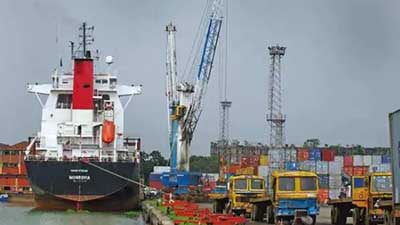Date: 27/12/2022
Relevance: GS-3: Indian Economy and issues relating to planning, mobilization, of resources, growth, development and employment and Government Budgeting.
Key Phrases: Union Budget, Growth, Phased Manufacturing Programme, PLI Scheme, Customs Duty, Ease of Doing Business, Manufacturing, Competitiveness.
Context:
- India's "rank in ease of doing business according to World Bank report has improved from 142 in 2014 to 63 in 2022.
- India has taken various relief and reform measures to manage the impact of the covid pandemic on the Indian economy and industry.
- These have contributed greatly to the simplification of the overall tax regime, and Union Budget 2023-24 can add to this ongoing effort to boost growth.
Key Highlights:
- The Central Board of Indirect Taxes and Customs (CBIC) has taken various initiatives to digitize customs processes and compliances as well as simplify duty tariffs.
- The effective duty structure has been simplified by removing more than 400-odd exemptions, incorporating the effective rates in the tariff entry itself.
- A set of general principles applied in the duty structure would encourage domestic manufacturing and calibrate it with global trade trends in a manner that will serve to strengthen India’s manufacturing capacity and export competitiveness.
- This can be supported through policy moves such as the Phased Manufacturing Programme together with the Production-Linked Incentive (PLI) scheme.
“DO You Know”
- Phased Manufacturing Programme:
- The Ministry of Heavy Industries has notified a Phased Manufacturing Programme (PMP) to promote indigenous manufacturing of Electric Vehicles, its assemblies / sub-assemblies and parts / sub-parts / inputs of the sub-assemblies.
- The PMP envisaged a graded duty structure to promote indigenous manufacturing over a period of time.
- PLI scheme:
- PLIs are essentially the incentives to companies to boost product. They could be in the form of tax rebates, import and export duty concessions, or maybe easier land-acquisition terms.
- Generally, the benefits of a PLI scheme are passed on to the final consumers of the goods in terms of lower prices.
- Customs Duty:
- It is a tax imposed on imports and exports of goods.
- The rates of customs duties are either specific or on ad valorem basis, that is, it is based on the value of goods
- Import duties are generally of the following types:
- Basic duty
- Additional Customs duty;
- True Countervailing duty or additional duty of customs;
- Anti-dumping duty/Safeguard duty.
Reforms To Further Enhance The Ease Of Doing Business:
- A GRADED ROADMAP:
- It is needed to shift duty slabs to a competitive level so that domestic manufacturers have time to adjust.
- Duty on imports of raw materials should be in the lowest or nil slab, intermediates in the lower slab of 2.5-5% and final products in the standard slab.
- A Phased Manufacturing Programme along with PLI will help Indian industry integrate into global value chains while making its goods and services competitive in world markets.
- A review of final and intermediate products is needed to ensure that inputs that are not manufactured in India are imported at lower duty to raise the export competitiveness of final products made here.
- Ease Of Doing Business
- Digital API (Application Programming Interface) connectivity can be leveraged for uploading data scheme for Bills of Entry and initiating payments of customs duty.
- It will also allow data sharing with other government portals to facilitate the necessary ‘paperwork’ for licenses and other documents under the Directorate General of Foreign Trade (DGFT).
- Timely disposal of appeal cases by lower appellate authorities.
- There is a need to further simplify compliances in the import duty exemption scheme of the Manufacture and Other Operations under Warehouse Rules (MOOWR) Act.
- One-Time Dispute Resolution Plan:
- A one-time dispute resolution plan, like the Sabka Vishwas scheme, should be introduced under the customs law to settle pending disputes.
- The Authority for Advance Ruling (AAR) plays a significant role in enhancing the ease of doing business and avoiding tax litigation.
- Hence, there is an acute need to enlarge the scope of and augment AAR teams to bring down the pendency of cases.
Conclusion:
- The government recently extended its Remission of Duties and Taxes on Exported Products (RoDTEP) scheme to other key sectors, which is a worthy step.
- It should be ensured that the benefits available under free trade agreements (FTAs) don’t defeat the overall objective of the PLI scheme and simultaneous rationalization of customs duty rates on raw materials and finished goods.
- These initiatives would go a long way in moving the country towards a stable, predictable and taxpayer-friendly regime.
Source: Live Mint
Mains Question:
Q. Rationalize duties, sharpen schemes and simplify processes can boost Indian manufacturing and its global competitiveness. Comment (150 words)






















